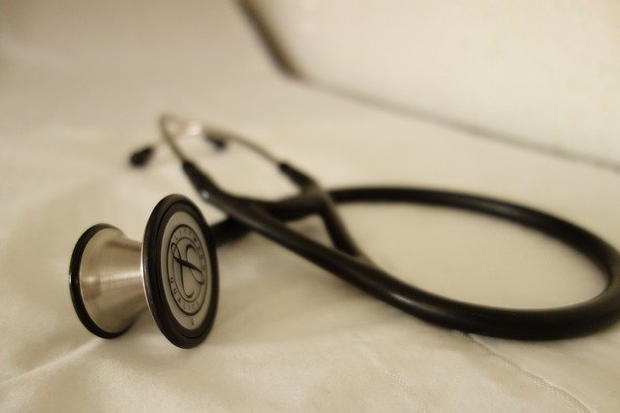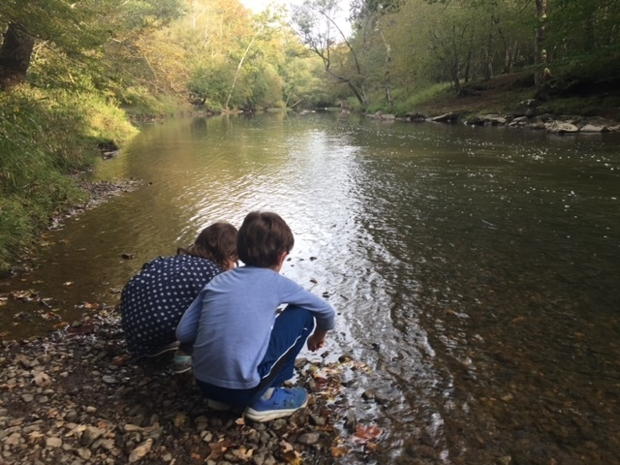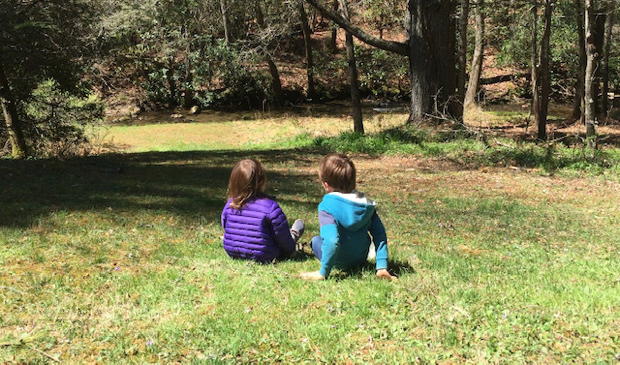
Rise and Shine.
My alarm wakes me at 5:45 a.m. I am usually up before my husband and two children (ages 4 and 7), although my 11-year-old lab mix is quick to join me and remind me about her breakfast. I savor this time of solitude. I try to start my day reading Scripture, either through a devotional or more recently through a combined reading/podcast plan that takes me chronologically through the Bible. Some mornings I go for an early run at dawn, where it is just me and the birds.

Go time.
The rest of the house is up by 7 a.m. We are all movement: eating breakfast, preparing lunches, getting ready for our respective days. The kids get distracted in their world of make-believe and have to be coaxed back to reality. My husband and oldest walk a few blocks to work and school. I drive my youngest in to daycare, and then head over to the hospital.
Outpatient Clinic.
I am an Infectious Diseases Physician, which means that I help care for people who have been impacted by bacterial, viral, or fungal infections. I see people for a variety of conditions, but specialize in care for people living with the Human Immunodeficiency Virus (HIV) and for people with chronic lung infections. Some of my patients are new to me, come for a consultation, and return to their referring provider. Others return to see me in clinic after having met me during a recent hospitalization when they were in the acute phase of their illness. Many of my patients have known me for years, as we continue to work on their care plans to keep them as healthy as possible. Our patient-doctor relationship is one of mutual trust and openness. “It’s you and me now,” I tell them. “We are in this together, and we’re going to figure this out.” I love seeing people heal over time, and being a part of that healing process. I cherish the times when I am able to tell people that they are cured and that they do not need me anymore. For those where cure is not yet possible, we set expectations and work towards a better quality of life.
Over the past year, my patients have shared how they have been impacted by the Covid-19 pandemic. Some have avoided coming to see me or other providers over fears of being exposed to the virus. Others have lost jobs, lost family members, or say that they have nearly lost their minds. Healthy habits such as eating a healthy diet, exercising, and avoiding excessive alcohol intake have often fallen by the wayside as lives turned upside down. We are all trying to find our footing and get back on the right track.

Duke Gardens.
A breath.
After clinic, I eat a quick lunch while attending an educational conference or finishing my clinic documentation. I chip away at my emails and address a few urgent administrative tasks. When time allows, I stroll through Duke Gardens and try to locate the elusive Great Blue Heron. Then I head back to the hospital.
Afternoon rounds.
I spend the afternoon seeing acutely ill patients in the hospital with either known infections or undiagnosed illnesses. This can be both the most rewarding and the most challenging part of my job. I find satisfaction in diagnosing an illness based on how an infectious pathogen causes disease, or working with multidisciplinary care teams to help steward patients and families through their illnesses, or teaching students, residents, and fellows about the intricacies of medicine. The counterbalance to these joys is an unimaginable amount of witnessed suffering, especially over the past year due to the Covid-19 pandemic. At the end of a two-week block of rounding, I am hollowed out by what I have seen. But I know that Jesus is with those who suffer. When things get heavy, I am reminded that he has called me to this job for a reason. I am still learning how to walk with others through their suffering. I am fortunate to have a strong group of colleagues, friends, and family to help me through mine.

Dinnertime.
I scoop up my daughter from daycare and we return home. My husband and son are already home, playing in the yard, or starting on dinner, or working on homework. Our leisurely family time helps me transition away from workday stress. We eat dinner together at a round wooden table that overlooks our backyard, and my husband asks the kids a unique question each night that yields hilarious yet insightful answers (“What is something that Mom really dislikes?” “BANANAS!”). We read a few books before bedtime at 7:30 p.m. Part of me regrets not having more time with my kids during workdays, but I know that we will make up for it over the weekend.
Winding down.
A little bit of clean-up, a little bit of preparation for the next day. I try to avoid checking email at home. My husband loves movies, I love books — a recent favorite: Memory Wall: Stories by Anthony Doerr. We find ways to compromise, and enjoy down time together.
Lights out.
I try to be in bed by 10 p.m. I mull the day over, thinking about what went well, and what didn’t. I write a few lines in a five-year memory journal, and I look back at last year’s entry and reflect on all that has happened since then. My professional life has been dominated by the Covid-19 pandemic, but my personal life has been blessedly stable. My husband and I both still have our jobs, my kids have had stable (and in-person) childcare/education for most of the pandemic, and our close family members have remained healthy.
In the moments before falling asleep, I thank God for all of my innumerable blessings and for the opportunities that he has given me. I ask for forgiveness, I ask for help, and I ask for the chance to do it all again tomorrow.

Photo of stethoscope by estableman from Pixabay. Duke Gardens photo by Ildar Sagdejev. All other photos by Kristen Dicks.